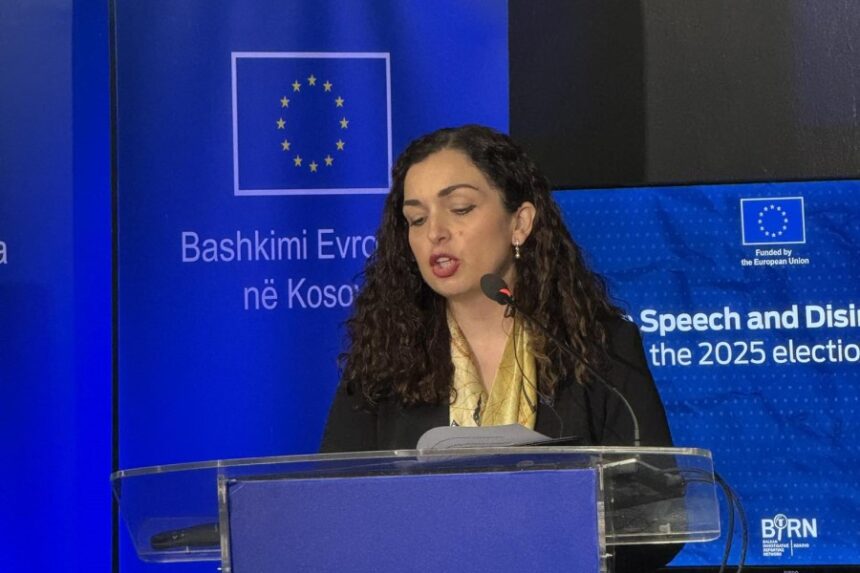Kosovo’s President Vjosa Osmani has warned that Russian and Serbian-backed media actively spread disinformation to undermine the credibility of Kosovo’s democratic processes, particularly during the parliamentary elections held on February 9.
European Union Report Uncovers Disinformation Tactics
The findings were presented in a report by the European Union Office in Kosovo and the Balkan Investigative Reporting Network (BIRN Kosovo) on hate speech and disinformation during the election campaign. Speaking on International Fact-Checking Day, EU Representative Aivo Orav emphasized that disinformation is not just misleading content but a deliberate effort to manipulate public opinion and erode trust in institutions.
“Anyone can become a target of information manipulation,” Orav stated, underscoring that external actors actively fueled destabilizing narratives against Kosovo’s electoral integrity.
Osmani: A Direct Threat to National Security
President Osmani highlighted that disinformation poses a significant threat to Kosovo’s stability and democracy, far beyond being a mere ethical or professional issue for media outlets. “Unchecked disinformation is a direct threat to our national security and democratic processes,” she stated, directly accusing Russia and Serbia of attempting to incite tensions in the region.
Key Findings: Russian and Serbian Influence in Kosovo Elections
BIRN Kosovo’s Kreshnik Gashi presented the report’s key findings, revealing that the February 9 elections saw a rise in hate speech and disinformation campaigns originating from Kremlin-backed sources and Serbian political circles.
- Social media played a significant role in amplifying hate speech and misleading narratives.
- Serbian and Russian actors orchestrated campaigns to undermine public trust in Kosovo’s elections.
- AI-generated disinformation and Chinese-sponsored content were identified as growing concerns.
- Kosovo’s regulatory institutions failed to effectively counter these threats, leaving the public vulnerable to manipulated content.
Gashi stressed that state institutions must improve media oversight to curb the spread of harmful narratives. “Kosovo’s regulatory bodies have struggled to control the reach of disinformation, enabling bad actors to multiply their influence,” he warned.
EU Reaffirms Commitment to Fighting Disinformation
The European Union has reiterated its strong commitment to supporting press freedom and fact-based journalism in Kosovo. Orav assured that the EU will continue to work on strategies to counter disinformation and protect Kosovo’s democratic integrity.







